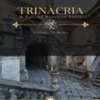“Chickens come home to roost” – Italian Studies suffers consequences for aversion to Patria Meridionale.
Introduction
With the recent announcement that SUNY Albany, following other colleges and universities around the country, is discontinuing its Italian Studies program (“because few students are enrolled”), one would hope this would motivate the Italian American literati to reflect about curriculum affects on enrollment numbers.
Specifically, why are there not robust Italian Studies programs in a nation with seventeen million self-identified Italian descendants? No doubt there are many socio-economic variables affecting enrollment. Humanities studies are not seen as vocationally relevant, especially in an ever-increasingly stressed economy. For example, in a recent interview, a state governor bragged about his success “reforming education” by dramatically increasing the number of welding programs in his state colleges.
However, there are also pedagogical variables that affect humanities education generally and Italian Studies particularly, independent of economics; variables associated with motivation and perception of relevance. Regardless of the economy: if students are not motivated and do not have a perception of relevance they will not enroll in Italian Studies.
Motivation and relevance are a function of curriculum; i.e. subject matter - what is taught!
Accordingly, Italian Studies' teachers and the Italian American literati should think of these program cut backs as a message from the southern-Italian American people that it’s a time for you to reflect..."We do not find your curriculums meaningful or relevant!"
What you teach - does not tell us about our progenitors – who they were /who we are!
What you teach - does not inspire us and motivate us to study more!
What you teach - does not fill us with pride and love for our Patria Meridionale!
Italian Studies - High School Curriculums
Students who apply to college for engineering programs do so because in high school they had experiences that motivated them to become engineers. Similarly, students who choose college majors in biology and chemistry with a mind to becoming doctors have been motivated to do so in high school.
We cannot conceive of a high school student with no math/science education majoring in a college math/science program. Indeed, why would a student with no math/science education even consider a college major in the math and science fields?
In short, high school experiences motivate students for college. Yet, Italian Studies’ educators seem oblivious to this pedagogical ‘truism’. They seem to think that interests in Italian Studies are like “Athena who leaped from the head of Zeus a complete form” - no development, no evolution.
Consider New York State’s high school curriculum and tell me why one should be so shocked that Italian Studies is being eliminated at SUNY Albany for lack of interest as measured by enrollment numbers. You cannot find a spec of the history and culture of southern Italy and Sicily in that curriculum. Italian studies in high school consist of ephemeral stopovers in Rome and Florence.
What is there in the high school curriculum that would motivate a southern-Italian American student to major in Italian Studies in college?
Italian Studies - College Curriculums
Nevertheless, even if high school curriculums motivated southern-Italian American students to pursue studies of their Patria Meridionale history and culture, what is available to them in colleges and universities? Renaissance studies - that sliver of Italian history on the Arno!
Certainly not the great mass of Italian history south of Rome; the vortex of all Mediterranean cultures, reaching back into the ancient river civilizations and penetrating deep into modern northern European cultures, is complete ignored.
Consider, SUNY Albany’s Italian Studies course description for “A ITA 315 Italian Civilization: From the Etruscans to Galileo”:
Seemingly, not much happened in the thousand years between the Etruscans and the Renaissance and certainly there are no Terroni worth emphasizing. Note also, Etruscans were a northern culture. 'Italian' in 'Italian Studies' always means 'northern Italian'.
Southern-Italian American students are required to read the minutia in Dante’s poetry and study the shades of blue in Michelangelo’s frescos, all of which tells them nothing about their history and culture. Yet, they never hear about the thirty-two books written by the great Sicilian historian Diodorus Siculus; who writes to them - for them - comes from the same neighborhood as them.
Virtually all Euro-Americans/ethnics (English, Irish, French, German, Russian, Spanish) find their history and culture in the history, literature, music and art curriculums; similarly Asian, African and Jewish Americans.
Yet, seventeen million southern-Italian Americans are invisible in the high school, college and university curriculums. Ours are the only students who do not see themselves in their textbooks. Ours is the only Euro-American/ethnic group that is not present in the American education system, secondary and post-secondary.
Conclusion
In sum, we all genuinely feel for and empathize with Italian Studies teachers put “on the dole”. However, if we are going to bring them back, then we must invigorate and revolutionize Italian Studies programs in high schools and universities with curriculums that are meaningful - not just beautiful in verse and paint.
Hopefully, all those smiling faces at the AP Italian celebration party will now reflect on their Pyrrhic Victory and begin putting their formidable prestige, influence and money to work creating meaningful south of Rome studies programs for our schools and universities. They might start by hiring some laid off teachers to develop Curriculum Patria Meridionale.





































i-Italy
Facebook
Google+
This work may not be reproduced, in whole or in part, without prior written permission.
Questo lavoro non può essere riprodotto, in tutto o in parte, senza permesso scritto.